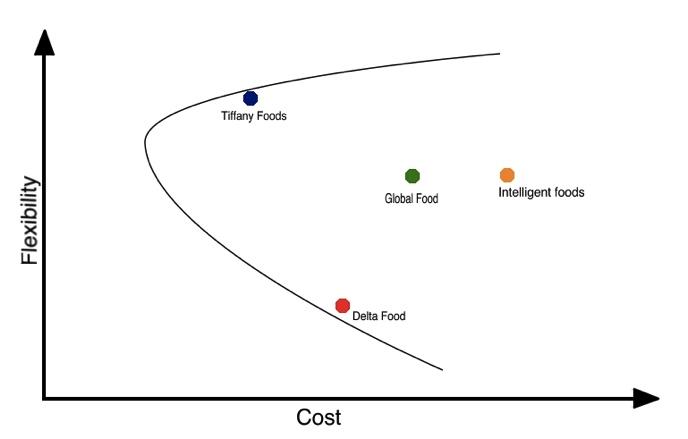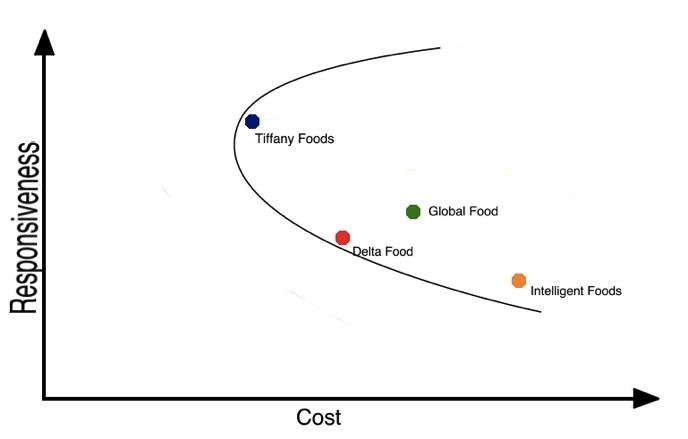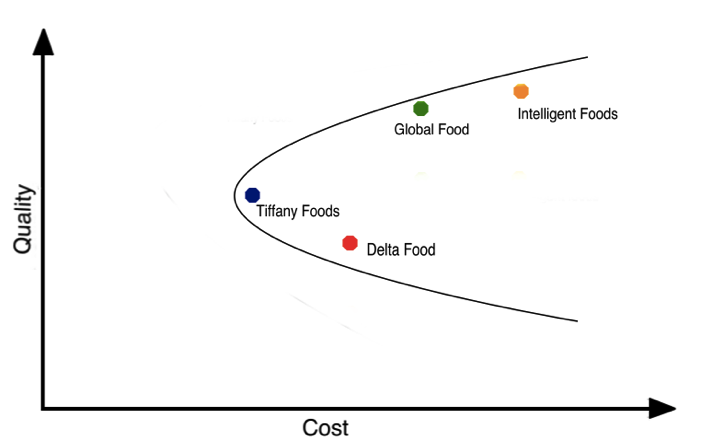The productivity of production processes is usually determined by the relationship between input and output, defined in terms of input divided by output. There are, however, different options in terms of input measures that can be used to evaluate productivity.
First of all, it is possible to use electricity as the input measure, since it accounts for a significant share of production expenses. Secondly, the company could use the input of raw materials, which would also help to assess the amount of waste. The third option is to utilise machine time or labour hours to measure the input. In all of these methods, the primary output to be measured is the quantity of the end product manufactured, such as potato chips.
In the contemporary business environment, many companies are under pressure to use renewable energy sources and reduce waste, thus contributing to sustainability. The first source of this pressure is the concerns with the business’ financial performance. Renewable energy sources and efficient production techniques used for minimising waste contribute to cost-cutting efforts, thus allowing companies to be more profitable.
Also, many governments offer incentives or tax exemptions to manufacturers using renewable energy sources and other green technologies. The second source of pressure is society and consumers who are becoming more environmentally conscious. Almost every adult consumer understands that large manufacturing businesses contribute to emissions that have a negative effect on the environment.
Thus, people might choose to buy products from green manufacturers instead of supporting environmentally damaging production methods. The third source of pressure is the government since many countries have laws in place to reduce emissions from large-scale production facilities. These factors influence FEEDO’s motivation to switch to green production methods. To achieve this goal, the company uses waste reduction techniques, such as recycling, and renewable energy sources, including solar power.
Quality, cost, flexibility, and productivity are the key concerns of production managers, as they have a direct influence on profitability. There are different methods that FEEDO can use to develop high-quality, flexible, low-cost, and productive practices. The best approach is to apply process improvement tools that seek to eliminate waste and reduce variation, thus promoting cost-effectiveness and ensuring high product quality.
One particular tool that would be useful for FEEDO is Lean Six Sigma. This approach focuses on step-by-step evaluation and enhancement of production processes to identify and remove errors, waste, or cost-ineffective activities.
In Lean Six Sigma, managers follow a set of steps, including defining processes and problems, measuring current performance, and analysing, enhancing, and maintaining processes. Thus, the management of FEEDO would need to describe and assess the current flow of production to determine if there are steps that cause excessive waste or errors, and then identify options for addressing issues.
For example, if the production process involves transporting unfinished products to a different place in the facility, it might be possible to re-arrange the machines to eliminate the need for transportation. Additionally, if the facility experiences a high incidence of errors of the same type, it would be beneficial to determine the machine causing errors and replace it with a more efficient one to reduce production costs and increase quality. Flexibility can also be addressed as part of Lean Six Sigma since the management can determine the current level of flexibility and alter equipment or processes to improve this aspect of production.

The flowchart (Figure 1) describes Cheetos manufacturing, which involves seven separate processes to transform the raw material input (cornmeal) into end product output (Cheetos chips). To analyse and improve the steps involved in production, it is necessary for the management to define the issue and measure the current performance. Then, depending on the nature of the problem, the management should determine ways of improving processes.
For example, if low efficiency is a critical problem, it would be possible to address it by increasing machine capacity or reducing the time required for each step. In case of specific errors, such as the insufficient amount of flavouring added to the product, it would be necessary to determine if there is a technical malfunction and to resolve it by repairing the machine or replacing it with a more efficient model. The Five Whys analysis or the Six Sigma approach can be applied to the process to identify and reduce waste and quality variations.
The three figures below represent the results of comparative analysis of four production companies in Sharjah, United Arab Emirates: Delta Food Industries, Global Food Industries, Intelligent Foods, and Tiffany Foods. As evident from Figure 1, the most efficient company in terms of flexibility is Tiffany Foods, which produces a number of different brands of food products. This company also has a great cost-responsiveness ratio, which places it on the efficiency frontier in Figure 2. In terms of quality, the most efficient company is Global Food Industries, although Intelligent Foods and Tiffany Foods also have good cost-quality ratios (Figure 3).


